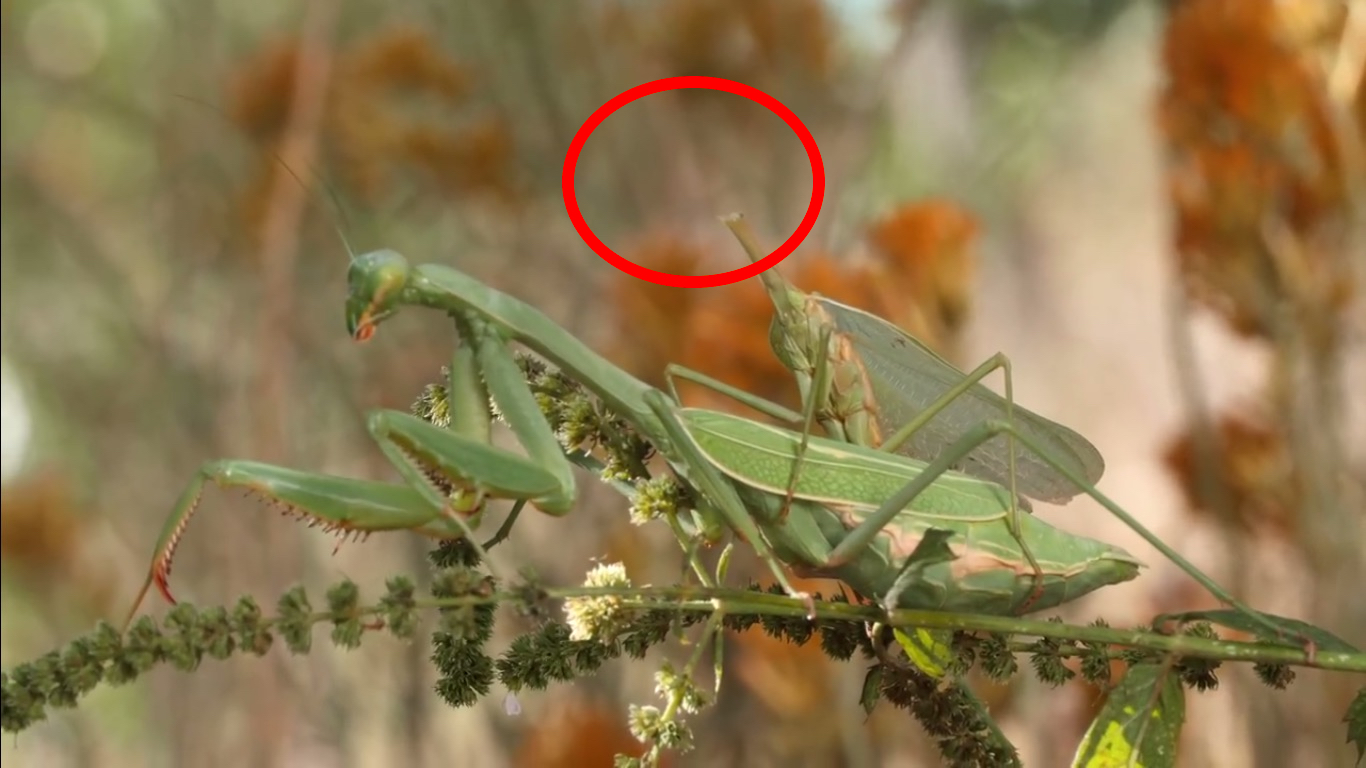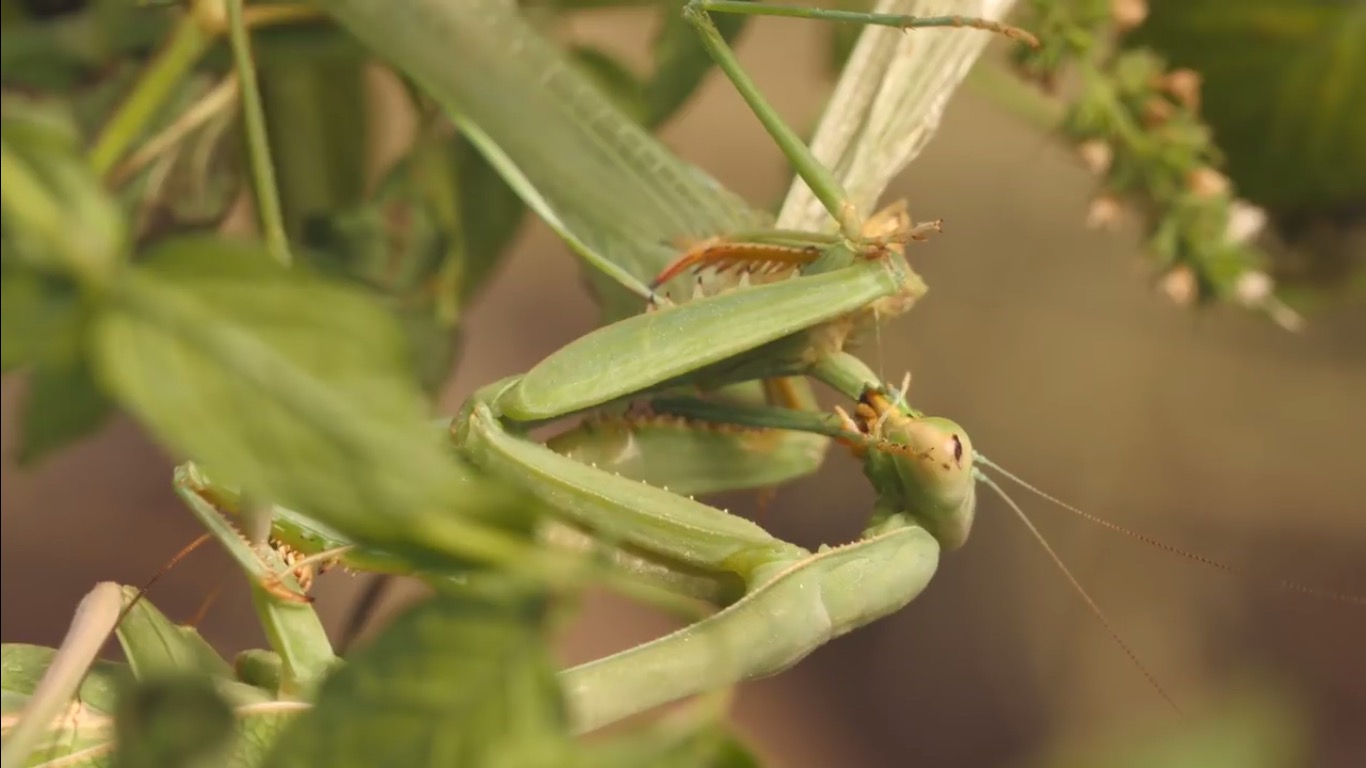WATCH: Male mantis continues to mate with partner, even without a head
A scientist from the United States has discovered some unusual behaviors regarding the mating practices of praying mantises. He found that males continue to mate with their partners even after being decapitated.
Female praying mantises have been known to devour their partners’ heads during or after mating. Dr. Michael Maxwell from the University of California discovered in his latest studies that males would continue mating even without a head, according to a report by KQED Science.
He unofficially refers to these decapitated male mantises as “headless horsemen.”

The remaining body of the male mantis continue to mate with the female. Image: YouTube/Deep Look by KQED
“It’s a really weird, strange behavior,” said Maxwell in the report. “So what’s going on? Why do they do it?”
It turns out these headless horsemen run completely on nerve reflex and are guided by the mantis’ remaining abdomen.
Maxwell also notes that sexual cannibalism typically happen in predatory animals. Especially when one member of a specie grows to be bigger and more powerful than the other. In the mantis world, the females are the bigger ones, hence the males end up on the dinner plate.
Mantises have a habit of going for the head first when landing a kill; females therefore tend to eat the male’s head during or after mating.

Image: YouTube/Deep Look by KQED
On the other hand, eating a mate’s head also provides the female mantis added nutrients for the developing eggs. From an evolution stand point, the guy who lost his head to the girl may end up fathering a hundred or so offsprings, which ensures that his genetic bloodline continues.
Maxwell also believes that female mantises mate multiple times to ensure genetic diversity among its offspring. He will have more evidence of this theory later on after analyzing the genetics of the hatchlings born from his controlled mating experiments with bordered mantises. Alfred Bayle/JB
RELATED STORIES:
Dogs make faces to communicate with humans, researchers discover
Jumping spider from Florida preys on frogs, lizards
T-Rex’s short arms were actually vicious weapons, new study suggests